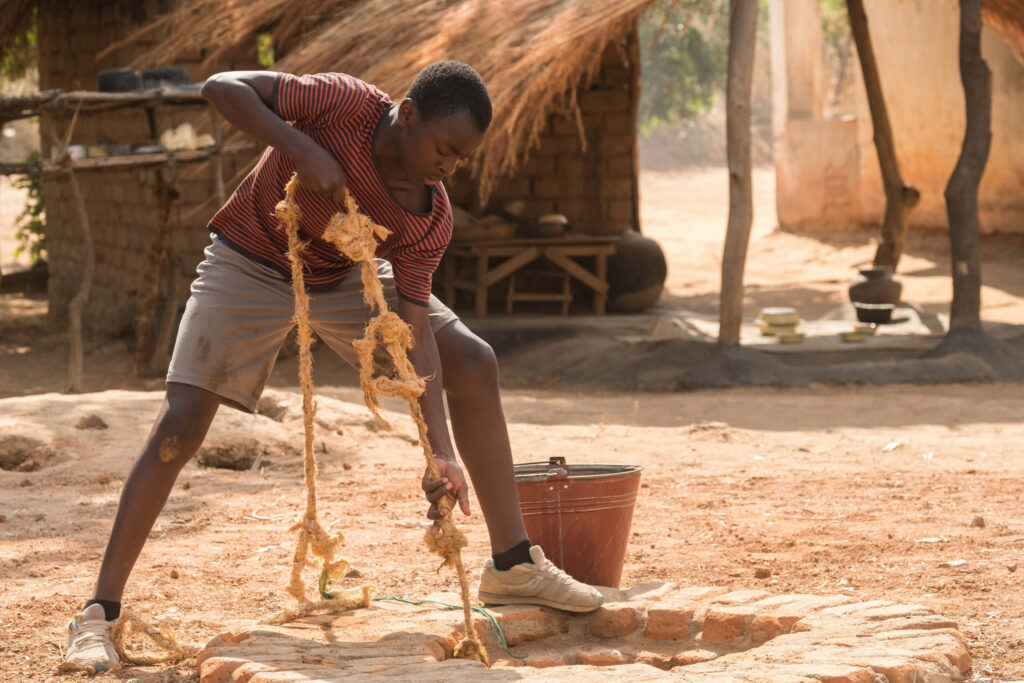Based on a true story, “The Boy Who Harnessed the Wind” is one of those rare films that can be watched multiple times, and every time you are bound to discover something new. Having given a phenomenal performance in Steve McQueen’s “12 Years a Slave,” this is surely one of the most ambitious projects of director and co-writer Chiwetel Ejiofor as he takes on the role of Trywell Kamkwamba, father of William Kamkwamba—a young school-going boy from Malawi, who, with the help of his ingenious mind and a determined heart, saves his family and village from imminent famine following prolonged periods of drought and political turmoil in the region.
Since a large share of the run-time of this film has been devoted to picturing the struggles of the farmer community amid governmental corruption, the movie is no less than a gift for the global audiences, filming a poignant experience of the unfathomable levels of hardship and financial difficulties still faced by millions of disadvantaged people in African countries.
William’s heartfelt character in the story is something to be admired—curious and innovative on one hand, and respectful and affectionate on the other. In practical sense, it is rare, if not impossible, for a teenage boy from a disadvantaged community to possess such a striking balance of those characteristics. But that is exactly what makes him capable of coming out as a hero for their family in the fight for survival as he becomes successful in powering a water pump by generating electricity from a self-made wind turbine in order to help plant crops amid droughts.
When one takes a closer look, it becomes evident that the ever-pervading challenges that so many communities in African countries face are not limited to only financial ones; there’s lack of education for children, deep-rooted social inequalities, and limited support from the governments that create a vicious environment of zero development. The film attempts to capture the unreliable political systems present in many African nations, due to which millions of people suffer unreasonably. For instance, ineffective food rationing systems run by the governments are of little help to the people as the grains don’t reach everyone equally, especially during difficult times.

Talking about the cinema aspects, you can witness brilliant film direction skills in almost every scene. At a time when our watch lists are buzzing with larger-than-life interplanetary superhero flicks, watching a true account of a young hero fighting for life in a small village in an African country is a refreshing experience.
So many dialogues have also been featured in a local language—Chichewa—spoken in Malawi. The environments have been created with intricate detail of the rural life—small houses with big families sitting together for dinner, open underground wells which are the only source of fresh water for the villagers, and local streets bustling with men, women, and children under scorching sun.
Probably the only shortcoming that seems to surface in the entire direction process is the slightly delayed progression of the main story, demanding some amount of patience from audiences as major events unfold in a slow-paced manner. However, the relaxed approach toward uncovering major events is something that might have been necessarily required in order to do justice to all the components involved in the plot.
Analysing with a broad perspective, “The Boy Who Harnessed the Wind” has an incredible power to remind us the importance of hope amid despair. Armed with a grounded approach and the right blend of cinematic elements, this 2019 British drama is a recommended watch that can inspire us to find our light in the darkest of times.
Follow the provided link to a Ted Talk from William Kamkwamba from 2007, describing his experience as an inventor.